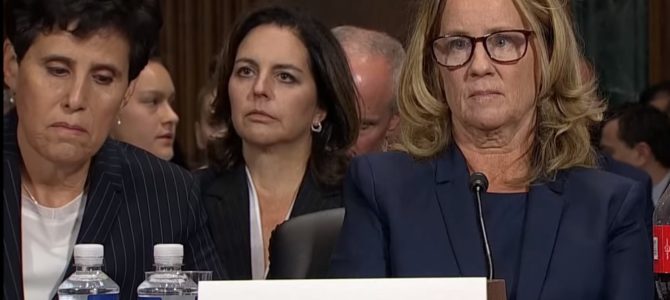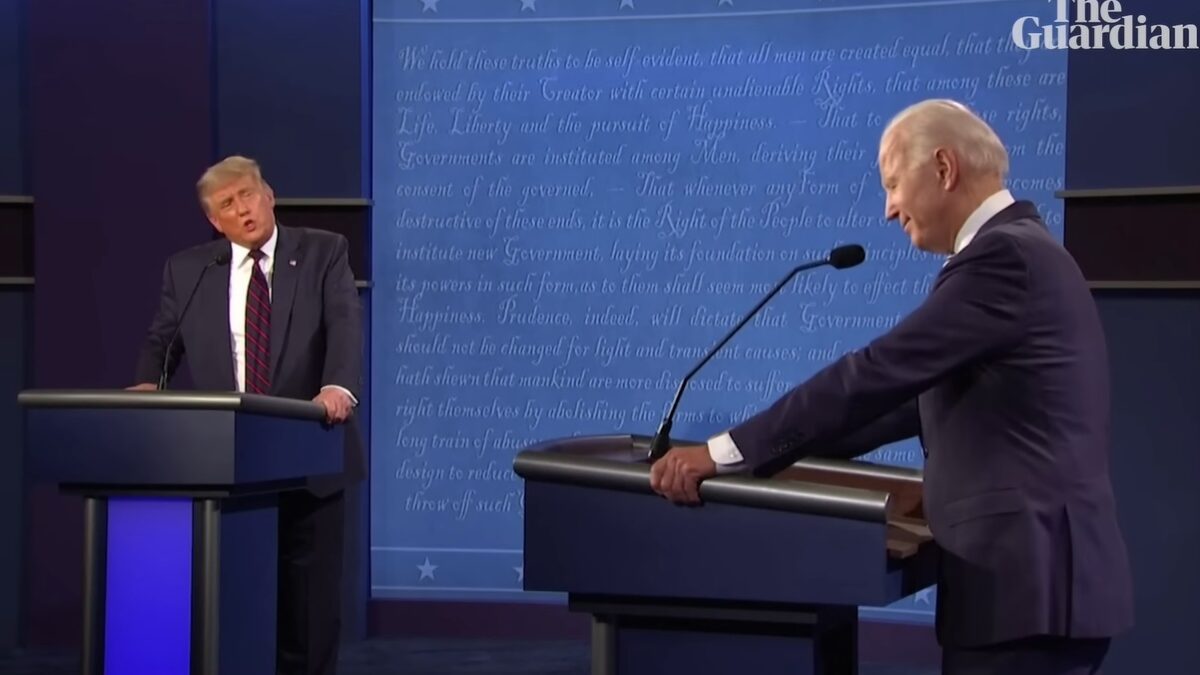
Like most professions, lawyers have codes of professional responsibility under which they operate. In the case of Brett Kavanaugh, Christine Blasey Ford’s counsel may well have violated them.
https://twitter.com/KMCRadio/status/1046505561309810688
It has been widely reported that the Senate Judiciary Committee offered to send investigators to California to speak with Ford. Ford did not accept this offer. In addition, Ford reportedly was unable to attend a hearing set for Sept. 24 because she is afraid of flying and could not otherwise get to Washington by that date. The committee agreed to delay its hearing to Sept. 27.
Yet in her testimony, Ford stated it was not clear to her that the Senate Judiciary Committee (SJC) had offered to take her statements and testimony in California to prevent her from having to fly. Ford testified she would have accepted the offer had she known about it.
Indeed, she testified to Chairman Chuck Grassley, “If you were gonna come out to see me I would have happily hosted you and would have been happy to speak to you out there. It wasn’t clear to me that that was the case.” Ford also testified, “I was hoping that they would come to me [in California] but I realized that was an unrealistic request.” Not only was it not unrealistic, the offer was on the table.
Here I’ll assume Ford testified truthfully that she was not clear about the Judiciary Committee’s offer. (The alternative raises its own issues.) If Ford’s attorneys did not inform her clearly of the SJC’s offer, the Judiciary Committee could file a grievance against Ford’s attorneys, Debra Katz and Michael Bromwich, with the DC Bar. It would be even worse if they withheld this information from Ford because they were interested in a delay of the hearing for reasons other than their client’s interests.
Lawyers have obligations to their clients and to the tribunals before which they practice. In this case, the client is Ford, and the tribunal is the SJC.
DC Bar Rule 1.4(b), “Communication,” provides that “A lawyer shall explain a matter to the extent reasonably necessary to permit the client to make informed decisions regarding the representation.” Did Ford’s lawyers withhold from her the SJC’s offer to take her statement in California? Or did they fail to make clear to Ford what the SJC had offered?
It beggars belief to think the offer could not be conveyed clearly. “The committee will take your testimony in California and you will not have to fly anywhere” seems straightforward enough. Grassley informed Minority Ranking Member Sen. Dianne Feinstein that “I have offered [Dr. Ford] the opportunity to testify in any of four possible venues: (1) a public hearing; (2) a private hearing; (3) a public staff interview; or (4) a private staff interview. I am even willing to have my staff travel to Dr. Ford in California — or anywhere else — to obtain her testimony.” It’s hard to see how that could be stated more clearly.
Bottom line, did Ford’s lawyers deprive Ford of the opportunity to make an informed decision about whether to accept that offer? Ford’s testimony that she was not clear about the SJC’s offer, and that she would have accepted it had she known about and understood it, certainly suggests so. If this is the case, counsel arguably violated Rule 1.4(b).
Counsel also owes a duty of candor to the tribunal, in this case the committee. Under DC Bar Rule 3.3, attorneys cannot make a false statement of fact or law to the tribunal. If Ford’s fear of flying would not have prevented her from testifying on Sept. 24 in California, then any representation they made to the committee that such fear of flying was the basis for a delay was a false statement. This seems particularly egregious if, as Ford’s testimony suggests, she did not realize the committee had offered to take her testimony in California and avoid Ford having to fly anywhere.
DC Bar Rule 4.4 provides that “In representing a client, a lawyer shall not use means that have no substantial purpose other than to embarrass, delay, or burden a third person, or knowingly use methods of obtaining evidence that violate the legal rights of such a person.” If Ford would have accepted the committee’s offer to testify in California, the committee could have completed that process well before the hearing on Sept. 27.
Ford’s counsel stated on Sept. 17, the day after the Washington Post published an aticle identifying Ford as Kavanaugh’s accuser, that Ford was ready to tell her story and, indeed, wanted an opportunity to tell her story. The committee, in all likelihood, could have had investigators in California by Sept. 19 prepared to speak with Ford, gather information, and pursue any leads. The SJC could then have held the public hearing in California on Sept. 24, as offered. Yet Ford was apparently unaware of or unclear about this option, and the hearing was put off until Sept. 27.
Given Ford’s testified-to willingness to speak to the SJC investigators in California, there seems no reasonable basis for the delay of the hearing to Sept. 27. Make no mistake, this delay unquestionably delayed and burdened numerous third persons. It obviously burdened Kavanaugh, who was subjected to further efforts from Senate Democrats to tarnish his name. We know Senate Democrats used this time for precisely this purpose. Debra Ramirez, the second accuser whose allegations were published in The New Yorker, stated she was contacted by Senate Democrats, not the other way around.
The delay also burdened the tribunal, the Senate Judiciary Committee. Instead of having the opportunity to collect facts essential to the SJC’s consideration of Kavanaugh’s nomination in a manner that could have minimized the publicity associated with the case, which could potentially affect witnesses, the committee lost ten critical days and subjected the process to the very public scrutiny Ford sought to avoid.
Perhaps worst of all, the delay and the failure to accept the SJC’s offer even embarrassed and harmed their client, Ford. Giving her testimony in California to Senate investigators would have allowed Ford to maintain at least a modicum of the privacy she desired.
Ford testified she was “terrified” about having to go before the SJC. Yet if her lawyers failed to tell or adequately explain to her that she could provide her testimony to investigators in California, outside the Washington spotlight and in a setting she would have preferred, her lawyers were the ones responsible for putting her in that terrifying situation. If they did it because it benefitted someone other than their client, that would be an extraordinary breach of the duty they owe their client. It would also suggest conflicts of interest, a subject on which the DC Bar Rules of Professional Responsibility have plenty to say.
And for what was this delay needed? Ford’s story was Ford’s story. It should not have changed between Sept. 17 and Sept. 27. She could have told it to Senate investigators on Sept. 19 and in a hearing on Sept. 24 just as easily as on Sept. 27.
Here’s a thought experiment: Imagine a federal district judge instructing an attorney to convey information to his or her client of something, and the attorney failing to do so. That attorney would be in a world of trouble. Depending on the judge, volcanic might not begin to describe the reaction. That’s what’s happened here if Ford did not know of or understand the offer to take her testimony in California.
For the last several weeks, the SJC Republican majority has been a marionette for activist Democratic lawyers, who keep demanding delay after delay. It’s time to go on offense. If this hearing was delayed by false representations by Ford’s attorneys and withholding information from their client, there may be grounds for the SJC to file a grievance with the DC Bar. If I were in the SJC majority, I’d be exploring those right now.
Sen. Lindsey Graham, what do you think?









